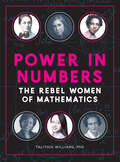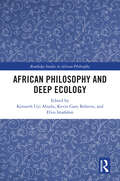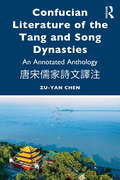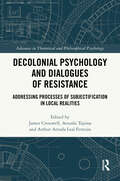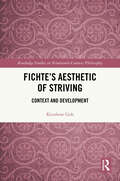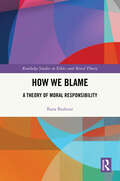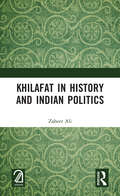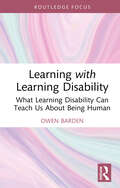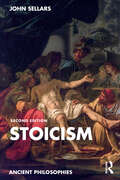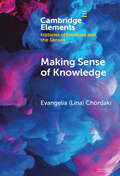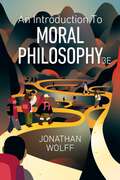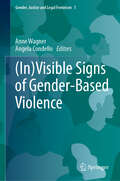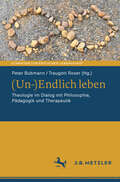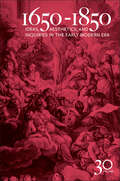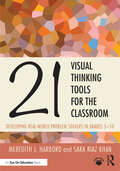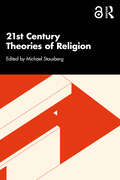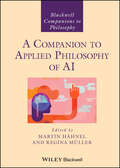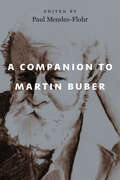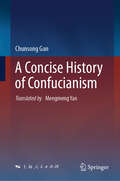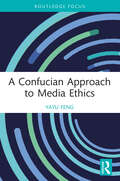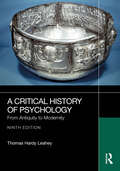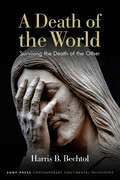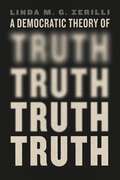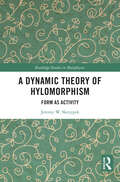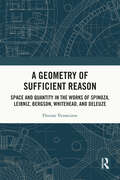- Table View
- List View
Power in Numbers: The Rebel Women of Mathematics
by Talithia WilliamsFrom rocket scientists to code breakers, “fascinating stories” of women who overcame obstacles, shattered stereotypes, and pursued their passion for math (Notices of the American Mathematical Society).With more than 200 photos and original interviews with several of the amazing women covered, Power in Numbers: The Rebel Women of Mathematics is a full-color volume that puts a spotlight on the influence of women on the development of mathematics over the last two millennia. Each biography reveals the life of a different female mathematician, from her childhood and early influences to the challenges she faced and the great achievements she made in spite of them. Learn how:After her father terminated her math lessons, Sofia Kovalevskaya snuck algebra books into her bed to read at nightEmmy Noether became an invaluable resource to Albert Einstein while she was in the NavyNative American rocket scientist Mary Golda Ross developed designs for fighter jets and missiles in a top-secret unitKatherine Johnson’s life-or-death calculations at NASA meant that astronauts such as Alan Shepard and John Glenn made it home aliveShakuntala Devi multiplied massive numbers in her head so her family could eat at nightPamela Harris proved her school counselors wrong when they told her she would only succeed as a bilinguial secretaryCarla Cotwright-Williams began her life in the dangerous streets of South-Central Los Angeles before skyrocketing to a powerful career with the Department of Defense in Washington, DCThese women are a diverse group, but their stories have one thing in common: At some point on their journeys, someone believed in them—and made them think the impossible was perhaps not so impossible.“A quick read . . . full of dramatic stories and eye-catching illustrations.” —MAA Reviews“I found myself marveling at the personal anecdotes and quotes throughout the book.” —Notices of the American Mathematical Society
African Philosophy and Deep Ecology (Routledge Studies in African Philosophy)
by Kenneth Uyi Abudu, Kevin Gary Behrens, and Elvis ImafidonThis book investigates African philosophical contributions to the concept of deep ecology, which advocates for rethinking human and non-human relationships within our ecosystems, by promoting the inherent and earned worth of all beings.With ecological crises impacting lives around the world, this book interrogates deep ecology thinking from African philosophical perspectives, highlighting the continent’s important ontological, epistemological, ethical, aesthetic, and broad philosophical contributions. The book investigates issues such as the eco-phenomenology of human / non-human animals’ relations, Ubuntu and the environment, the superiorist fallacy, environmental belongingness, the impact of colonization and modernity on non-human trauma, the politics of ecological narrative about African places, the question of moral status, African socialist perspectives, the question of degrowth, selective subordination, biodiversity loss, land ethics, the ontology of waste, and the concept of personhood in relation to global climate and ecological justice.Providing a significant intervention in our understanding of the ecological crises and our duties toward ecosystems and the non-human other in the twenty-first century, this book is an important read for researchers, advocates and other stakeholders working in the fields of environmental philosophy, climate change, indigenous studies, and African Studies.
Confucian Literature of the Tang and Song Dynasties: An Annotated Anthology 唐宋儒家詩文譯注
by Zu-yan ChenThis book establishes “Confucian Literature” as a multidisciplinary genre. By breaking down the barriers between literature and philosophy, this book opens the field of Chinese literature to new interpretive methods, and brings Confucian values to readers through literature. The anthology is a selection of 28 literary works—12 poems and 16 prose pieces—by 21 authors from the Tang and Song Dynasties (618–1279). The translations, arranged side by side with the original texts, strive to remain as faithful as possible to the wording of the source material, and conveying its meaning, style, and beauty. The commentary investigates philosophical discourse, locates Confucian values, and points to where literature joins philosophy.
Decolonial Psychology and Dialogues of Resistance: Addressing Processes of Subjectification in Local Realities (Advances in Theoretical and Philosophical Psychology)
by James Cresswell Atsushi Tajima Arthur Arruda Leal FerreiraInterweaving rich theory on dialogism, power, and resistance together with situated scenarios addressing the production of psychological knowledge, this book explores decoloniality as it interfaces with strategic fields in psychology.Current movements in global sentiment have raised important calls for decolonial action. In this volume an international set of authors come together to critically challenge power by considering how colonial mindsets develop and are retained. Drawing on dialogism inspired by Bakhtin, Vygotsky, and other leading thinkers of dialogicality, the book focuses on dialogue and how it is tied to the ability to think in ways outside colonial mindsets. It challenges approaches that run the risk of bypassing how fundamental colonialism has become for human thinking, and incorporates visions to consider how, both conceptually and methodologically, a postcolonial or decolonial psychology can be done. In so doing, it guides readers beyond the status quo to consider a program to improve psychology, formulate a new psychological culture, and bring about discussion beyond the permanent – yet generative – tension between liberating and subordinating psychologies.The book will be key reading for theoretical and critical psychology scholars and postgraduate students, particularly those interested in community engagement and decolonizing psychology. It will also be of interest to those engaged in research in Bakhtian studies, critical theory, and power studies.
Fichte’s Aesthetic of Striving: Context and Development (Routledge Studies in Nineteenth-Century Philosophy)
by Kienhow GohThis book explores Fichte's theory of sensibility, focusing on its theoretical and practical significance. It offers unique insight into Fichte’s reinterpretation of Kant's aesthetic theory.Fichte's theory of sensibility can be found in his unpublished manuscript Practical Philosophy (1793/94). The author approaches this text as Fichte's attempt to reorganize Kant’s transcendental aesthetic and aesthetic of pure practical reason into a unified whole. The first half contains one of the first chapter-length studies of Abicht’s Attempt at a Metaphysics of Gratification (1789) and Fichte’s Practical Philosophy. In this section, the author examines the context and development of a “philosophy of striving” in Practical Philosophy, explains the background of Fichte’s aesthetics, and provides a concise discussion of Kant’s sensationalist view of pleasure. The second half explores how the investigations in Practical Philosophy reemerge in the Jena period through the theory of aesthetic experience and artistic creation, theory of moral deliberation, and theory of truth and justification (particularly in philosophy) and illustrates the pivotal role Fichte assigns to feelings in human spiritual development.Fichte’s Aesthetic of Striving will be of interest to scholars and advanced students working in the history of modern philosophy, the history of aesthetics, German idealism, and 19th-century philosophy.
How We Blame: A Theory of Moral Responsibility (Routledge Studies in Ethics and Moral Theory)
by Bana BashourThis book presents a naturalistic account of moral responsibility that is neutral on the metaphysics of free will. It engages with empirical literature in experimental philosophy and psychology and draws on real-life case studies to illuminate the author’s theory of moral responsibility. The author argues that agency requires an understanding of moral responsibility attributions, which requires that one understands one’s intentional states and those of others. Further, she argues that a justified attribution of moral responsibility involves justified attributions of intentional states and justified perceptions of norm violations. This claim is novel because when moral responsibility is indexed to a particular onlooker, the discussion becomes one about whether a blamer is justified in attributing moral responsibility to the blamed. Another distinctive feature of the author’s account is that it makes room for cultural variability in our justifications of moral responsibility; those in different cultures may have different norms or expectations of one another. The first part of the book argues for a theoretical account of agency and moral responsibility while making distinctions between those and one’s theory of punishment. While justified attributions are interpersonal, theories of punishment are institutional and societal in nature. The second part of the book goes into the literature from empirical psychology and experimental philosophy on the nature of moral responsibility. How We Blame will appeal to philosophers and psychologists interested in the issue of moral responsibility.
Khilafat in History and Indian Politics
by Zaheer AliThis book is a brief historical account of Khilafat, an Islamic political institution mired in controversies from its inception. It is an attempt to present an objective critique of the Islamic polity that, in a way, was primarily responsible for crafting schisms in Islam with its commencement. By the time the last Khilafat of the Ottomans came to an end in the aftershock of the Second World War, the Muslim political elite in India launched a movement for the restoration and continuation of the Ottoman Khilafat. The most paradoxical dimension of the issue was that in the Arab peninsula, the epicenter of Islam, the people were struggling to cast away the yoke of the Ottoman Khilafat, then why were the Indian Muslims emotionally involved in a movement that was vehemently condemned and assailed by a majority of Muslims outside the Indian subcontinent? This title is co-published with Aakar Books. Print editions not for sale in South Asia (India, Sri Lanka, Nepal, Bangladesh, Pakistan and Bhutan)
Learning with Learning Disability: What Learning Disability Can Teach Us About Being Human (Autocritical Disability Studies)
by Owen BardenThis book uses the concept of “learning disability” to explore what it means to be human. It argues that we need to learn with rather than from or about learning disability. This crucial distinction means being open to what learning disability can teach us about what it means to be human. This approach comes from recognising learning disability as an organising concept – a concept which radically transforms our sense of what it means to be – or not be – a person.After reflecting on the author’s relationship to learning disability, the book explores relationships and tensions between conceptualisations of learning disability and of the human. Through historical ontology, the book initially examines how the phenomenon of “learning disability” came into being. It then explores ways in which the concept of learning disability has, over the course of the 20th and 21st centuries, radically transformed our sense not only of education and learning, but also of who is or is not deemed entitled to full citizenship and the associated rights, and so who is or is not fully human. Each chapter of the book exposes tensions and contradictions apparent in the ways we tend to think about personhood and learning disability, illuminating them through a series a binary oppositions: human and not fully human; menacing and vulnerable; controlled and abandoned; capable and incapable; human and posthuman.The book concludes by drawing together these tensions and contradictions to challenge the prevailing metanarrative of disability and make the case for a more inclusive conceptualisation of what it means to be human.It will be of interest to all scholars and students of disability studies, the history of learning disability, humanism and posthumanism, and learning disability advocacy.
Stoicism (Ancient Philosophies)
by John SellarsThis new edition of Stoicism provides an introduction to one of the most influential schools of philosophy in antiquity, the influence of which has persisted to the present day.Originating in Athens around 300 BCE, Stoicism flourished for some five hundred years and has remained a constant presence throughout the history of Western philosophy. This new revised edition takes into account the wealth of scholarship that has been published in the last 20 years and the explosion of interest in Stoicism as a practical guide for living today. It begins with a complete introduction to the ancient Stoics, their works, and how they formulated their own philosophical system. The chapters then thoroughly examine the three core branches of Stoic philosophical doctrine – logic, physics, and ethics – while the final chapter provides an account of the Stoic legacy from later antiquity to now. The book also includes a chronology, useful glossaries, and a guide to further reading.This accessible, authoritative guide is an ideal introduction to the philosophy of Stoicism that stands behind much of the practical advice offered by Seneca, Epictetus, and Marcus Aurelius, suitable for students and general readers.
Making Sense of Knowledge: Feminist Epistemologies in the Greek Birth Control Movement (1974–1986) (Elements in Histories of Emotions and the Senses)
by Evangelia (Lina) ChordakiWhat counts as knowledge, expertise, and theory? How are knowledge hierarchies connected to emotional and hierarchies of subjects? How does the division between emotion and reason shape our experiences? The Element addresses these questions by exploring the Greek feminist birth control movement (1974–1986), focusing on the production and circulation of knowledge, termed as affective epistemologies of antimilima (talking back). This concept reinterprets women's lived and embodied knowledge, emerging at the intersection of academia and social movements, as a form of resistance against established expertise. By drawing on feminist theorists like Donna Haraway and Sara Ahmed, the Element critically examines the relationship between scientific and experiential knowledge. This analysis reconfigures the interplay between rationality and emotion, providing a critique to the binary model of thought and suggesting new avenues for democratic knowledge, society, and citizenship. Historical tracing of these theories offers a counter-narrative to contemporary anti-gender, anti-intellectual, and far-right politics.
An Introduction to Moral Philosophy (Third Edition)
by Jonathan WolffEmpower students to think critically about ethical theories and moral dilemmas. From his influential scholarship to his popular writings to his appearances on the BBC, Jonathan Wolff has a knack for making moral philosophy vivid and exciting for any audience. In An Introduction to Moral Philosophy, he wields this talent to deliver a text that students enjoy reading. In addition to surveying the basics of ethical theory and critical thinking, Wolff guides students through debates about some of today’s most urgent moral issues, including the ethics of race, gender, artificial intelligence, and public health. The text invites students to think for themselves about real-world issues and provides them with an accurate, appealing sense of what moral philosophy is all about. This purchase offers access to the digital ebook only.
**Missing** (Gender, Justice and Legal Feminism #1)
by Anne Wagner Angela CondelloThe edited volume explores the causes, forms, and cultures of gender-based violence in society, including how children are educated, how games, art and even language promote differences, stereotypes, neutrality between men and women. It is a place to reflect on the growing importance of tolerance, diversity and acceptance of others. The book focuses on many facets, whether in a confined or public space, with a series of empirical and theoretical chapters from around the world. The volume provides key contemporary commentary on the changing dynamics of gender-based violence. It unveils a range of contexts and spaces in which gender-based violence happens, showcasing its scale and impact worldwide. The discussions presented in the book encourage a critical reflection on the global pandemic of gender-based violence, prompting a vital question about the sufficiency and effectiveness of responses to this global crisis (Professor Olga Jurasz, The Open University Law School).
**Missing**: Theologie im Dialog mit Philosophie, Pädagogik und Therapeutik (Schriften zur Kritischen Lebenskunst)
by Peter Bubmann Traugott RoserDer Begriff ‚Lebenskunst‘ ist in der Beratungsliteratur, Praktischen Philosophie und theologischen Fächern schnell populär geworden. Aber kann er auch in interdisziplinärer Zusammenarbeit als Leitkategorie dienen? Dieser Band fragt im Gespräch mit Philosophie, Pädagogik und Therapeutik und in ökumenischer theologischer Kooperation nach der Tragfähigkeit des Lebenskunstkonzepts. Damit findet zum ersten Mal in der deutschsprachigen Wissenschaft ein vertiefter Austausch zwischen theologischen und kulturwissenschaftlichen bzw. philosophischen Ansätzen einer Theorie der Lebenskunst statt. Der Band richtet sich an alle, die theoretisch wie praktisch an Fragen der Lebenskunst und an ihrer theoretisch-konzeptionellen Vertiefung interessiert sind. Diskutiert wird, was Theologie in die Lebenskunstdiskurse und die konkreten Fragestellungen einer Alltagsethik einzubringen hat und wo sie von den kulturwissenschaftlichen Lebenskunstdiskursen lernen kann. Wo gibt es Brücken zwischen therapeutischen Lebenskunstansätzen und christlicher Seelsorge? Wie wird Kunst theologisch wahrgenommen und was bedeutet das für ein Lebenskunstdenken? Ein eigener Akzent liegt auf der Klärung von Gender-Fragen und sexueller Identität und auf der Bedeutung transhumaner Vorstellungen von Lebenskunst(-hilfe), etwa durch Robotik und KI. Wie Lebenskunst zu erlernen wäre, ist Gegenstand eines Dialogs zwischen Vertretenden der Allgemeinpädagogik und der Religionspädagogik.
1650-1850: Ideas, Aesthetics, and Inquiries in the Early Modern Era (Volume 30) (1650-1850)
by Christopher D. Johnson Susan Spencer Lynn Festa Anthony W. Lee Victoria Barnett-Woods Ashley Bender Yvonne Fuentes Melanie Hayes Pamela F. Phillips Michael J. Mulryan Duane Coltharp Courtney A. Hoffman Flavio Gregori Steven Minuk Andie Barrow Ross W. Beales Jr. Stephanie Koscak Corey Risinger Youenhee Kho Donald W. Nichol Christopher VilmarExploratory, investigative, and energetically analytical, 1650–1850 covers the full expanse of long-eighteenth-century thought, writing, and art while delivering abundant revelatory detail. Essays on well-known cultural figures combine with studies of emerging topics to unveil a vivid rendering of a dynamic period, simultaneously committed to singular genius and universal improvement. The contributors to volume 30 join with Enlightenment thinkers in pulling, pushing, and stretching the elastic boundaries of human experience. Essays on comical apocalypticism, the evolution of satire, and the Asian periphery of English literature open a volume that offers two special features on extreme aspects of a modernizing world. The first probes the undiscovered world of last wills and testaments, while the second explores the soaring world of eighteenth-century birds. As always, 1650–1850 culminates in a bevy of book reviews critiquing the latest scholarship on long-established specialties, unusual subjects, and broad reevaluations of the period. Published by Bucknell University Press. Distributed worldwide by Rutgers University Press. ISSN: 1065-3112
21 Visual Thinking Tools for the Classroom: Developing Real-World Problem Solvers in Grades 5-10
by Meredith J. Harbord Sara Riaz KhanThis resource is for any busy teacher looking to enrich their lesson planning and support the development of critical thinking, problem-solving, and metacognition skills. Designed for use in Grades 5–10, each of these 21 tools is paired with a real-world issue or ethical dilemma to guide students through complex social, emotional, and intellectual topics and can even be used within your existing lessons.Every chapter introduces a different visual thinking tool and a step-by-step approach for a range of topics from challenging bias and promoting self-awareness to reflecting on social interactions. Stories from the classroom and world, a range of ethical issues, and student and educator examples illustrate how the tools can be used.Ideal for in-service teachers in Grades 5–10 across content areas regardless of curriculums, these tools will inspire your students to be open-minded and actively engage in classroom discussions while developing new and different perspectives about themselves, your lessons and the world around them.The 21 Harbord & Khan Thinking Tools © featured in the book are available to download for classroom use at www.routledge.com/9781032662923.
21st Century Theories of Religion
by Michael StausbergWhat is religion and how does it originate? What are its functions and how does it work? These are some of the key questions addressed by theories of religion. Far from being a past concern, a series of new answers have been proposed since the beginning of our present millennium by evolutionary biologists and psychologists, philosophers, sociologists, and scholars of religion.In 21st Century Theories of Religion, Michael Stausberg is joined by leading scholars from Europe and North America to present and critically discuss fifteen contemporary theories. Contributions introduce the theoreticians, unpack their arguments, review their reception, and engage in critical debates. The volume provides a cutting-edge point of entry into a key conversation that no student and scholar of religion/s can afford to ignore.Chapter 1 of this book is freely available as a downloadable Open Access PDF at http://www.taylorfrancis.com under a Creative Commons Attribution-Non Commercial-No Derivatives (CC BY-NC-ND) 4.0 license.Chapter 3 of this book is freely available as a downloadable Open Access PDF at http://www.taylorfrancis.com under a Creative Commons Attribution-ShareAlike (CC BY-SA) 4.0 license.
A Companion to Applied Philosophy of AI (Blackwell Companions to Philosophy)
by Martin Hähnel Regina MüllerA comprehensive guide to AI's ethical, epistemological, and legal impacts through applied philosophy Inartificial intelligence (AI) influences nearly every aspect of society. A Companion to Applied Philosophy of AI provides a critical philosophical framework for understanding and addressing its complexities. Edited by Martin Hähnel and Regina Müller, this volume explores AI's practical implications in epistemology, ethics, politics, and law. Moving beyond a narrow ethical perspective, the authors advocate for a multi-faceted approach that synthesizes diverse disciplines and perspectives, offering readers a nuanced and integrative understanding of AI's transformative role. The Companion explores a broad range of topics, from issues of transparency and expertise in AI-driven systems to discussions of ethical theories and their relevance to AI, such as consequentialism, deontology, and virtue ethics. Filling a significant gap in the current academic literature, this groundbreaking volume also addresses AI's broader social, political, and legal dimensions, equipping readers with practical frameworks to navigate this rapidly evolving field. Offering fresh and invaluable insights into the interplay between philosophical thought and technological innovation, A Companion to Applied Philosophy of AI: Features contributions from leading philosophers and interdisciplinary experts Offers a unique applied philosophy perspective on artificial intelligence Covers diverse topics including ethics, epistemology, politics, and law Encourages interdisciplinary dialogue to better understand AI's profound implications for humanity A Companion to Applied Philosophy of AI is ideal for undergraduate and graduate courses in applied philosophy, AI ethics, political theory, and legal philosophy. It is also a vital reference for those working in areas including AI policy, governance, and interdisciplinary research.
A Companion to Martin Buber
by Paul Mendes-FlohrA definitive, international guide to the thought of the most important twentieth-century Jewish philosopher. In his 1923 essay, I and Thou, the philosopher, theologian, and activist Martin Buber introduced a philosophy of dialogue that achieved a global, interdisciplinary resonance. For Buber, dialogue was more than a conversation; dialogue discloses something essential about our orientation and our lives with one another. This companion assembles twenty-six scholars from a dozen countries to explore Buber’s international reputation and legacy in education, interfaith relations, Judaism, philosophy, politics, and psychology. The result is an essential guide to one of the most influential Jewish thinkers of the twentieth century.
A Concise History of Confucianism
by Chunsong GanThis book is a readable and insightful analytical work that steadily traces and analyzes the historical development of Confucianism in China. This book is structured chronologically and discusses the developing positions of Confucianism across different periods in the Chinese history. Each chapter focuses on a number of key questions and perspectives pertaining to Confucian thoughts and ideas, for example, &‘Benevolence&’ and &‘Propriety&’ in Pre-Qin Confucianism, studies of Mencius and Xunzi, and Dong Zhongshu of the Han Dynasty . In addition, this book pays special and extensive attention to ideas of New Confucianism, its concepts, and formation. This book is written in a simple yet comprehensible style. It aims to broaden and deepen studies of Confucianism via its stage-by-stage discussion about the historical development of Confucian thoughts. Both academic specialists and ordinary readers will find the book helpful and inspiring in its clear and vivid delineation, analysis, and debate about the essence, function, and role of Confucianism in traditional and modern societies alike.
A Confucian Approach to Media Ethics (Routledge Focus on Communication Studies)
by Yayu FengA Confucian Approach to Media Ethics offers a comprehensive theorization of an approach to media ethics based on the moral philosophy that originated from China and that profoundly influenced East Asian countries.This book engages with foundational concepts from Confucian ethics and explicates a new framework that can be used for guiding media practices, as well as media ethics research and teaching. It suggests that the Confucian ideals of He (harmony), Zhong (equilibrium), and the notion of Junzi can be applied to guide intercultural media practices, and sets out a fresh model for ethics education centered on Xiuji (self-cultivation) that is different from the training-based and decision-making-centered model prevalent in the Western classrooms. This is also a framework that emphasizes both individual moral growth and the moral character of the broader professional community.Filling a gap in the conversation between Eastern and Western approaches to media ethics, this innovative and important volume will offer new perspectives to students and scholars of media ethics, communication studies, and comparative philosophy.
A Critical History of Psychology: From Antiquity to Modernity
by Thomas Hardy LeaheyThis fully updated and refreshed 9th edition places social, economic and political forces of change alongside psychology’s internal theoretical and empirical arguments. It utilizes a critical lens to illuminate the way in which the external world has shaped the development of psychology and, in turn, how psychology from antiquity to modernity has shaped society.The text approaches the material from an integrative, rather than wholly linear, perspective, carefully examining how issues in psychology reflect and affect concepts that lie outside the field of psychology’s technical concerns as a science and profession.Key features of this edition include: A newly reconsidered structure, including five additional interludes exploring historical background narratives and the rise of modernity, to allow for flexible and adaptable textbook use. Expanded exploration of the two psychologies: the Way of Ideas, driven by epistemology and unique to Europe, and The Way of Human Nature, a universal concern to find a science of human behavior and its management. Including scientific, applied, and professional psychology, as well as coverage of the social sciences and social policy implications, this book is appropriate for high-level undergraduate and graduate students.
A Death of the World: Surviving the Death of the Other (SUNY series in Contemporary Continental Philosophy)
by Harris B. BechtolOffers a description of what happens to survivors after a death, based on the effect this death has on the survivor's relation to the spatial and temporal world occupied after the loss of the deceased.A Death of the World offers a phenomenological description of what happens to the world for those who survive the death of someone. Bringing Jacques Derrida's works into conversation with the philosophies of Martin Heidegger, Emmanuel Levinas, Jean-Luc Marion, Maurice Blanchot, and Claude Romano; the poetry and literature of Paul Celan, W. H. Auden, Emily Dickinson, Ovid, and Jonathan Safran Foer; and psychological works concerning trauma, mourning, epigenetics, and memory, author Harris B. Bechtol provides interdisciplinary language for understanding the death of the other as an event. He argues that such death must be understood as an event because this death is more than just the loss of the other who has died insofar as the meaning of the world to and with this other is also lost. Such loss manifests itself through the transformations of both the spaces in which meaning takes place and the lived time of a survivor's world. These transformations of the world culminate in his account of workless mourning, which establishes the contours of the life after these deaths of the world.
A Democratic Theory of Truth
by Linda M. ZerilliA critique of the concept of truth presupposed by the post-truth debate—and a bold new vision for a more pluralistic citizenry. We say that we live in a “post-truth” era because disinformation threatens our confidence in the existence of a shared public world. Affirming objective truth may, therefore, seem necessary to save democracy. According to political theorist Linda M. G. Zerilli, such affirmation can stifle political debate and silence dissent. In fact, Zerilli argues that the unqualified insistence on objective truth is as dangerous for democracy as denying it. Drawing on Arendt, Foucault, and Wittgenstein, A Democratic Theory of Truth challenges the concept of truth presupposed by the post-truth debate. It argues that we, the people, have an essential role in discovering and evaluating any truth relevant to the political realm. The result is a striking defense of plurality, dissent, and opinion in contemporary democratic societies.
A Dynamic Theory of Hylomorphism: Form as Activity (Routledge Studies in Metaphysics)
by Jeremy W. SkrzypekThis book introduces a novel hylomorphic theory of material objects, according to which material objects are understood as comprised or composed of both matter and activity, where activity plays the role of form. This theory, “hyloenergeism,” captures the dynamic nature of many of the objects of our experience, such as living organisms, better than other leading varieties of contemporary hylomorphism.Hylomorphism is the theory according to which material objects are understood as comprised or composed of two fundamental parts, components, aspects, or principles: matter and form. Many contemporary hylomorphists endorse a version according to which the form of a material object is understood as a certain kind of complex relation or structure realized in its material parts. Others endorse a version according to which the form of a material object is understood as a certain kind of power or disposition continuously activated in the object or in its material parts. This book argues against structural and dispositional varieties of hylomorphism in favor of a third approach: hyloenergeism. Drawing on various aspects of traditional Aristotelian hylomorphism and other contemporary occurrence-based theories of material objects, it argues that hyloenergeism has the resources to successfully avoid or resolve several major concerns for other competing hylomorphic views.A Dynamic Theory of Hylomorphism will appeal to researchers and graduate students working in metaphysics, ancient philosophy, and medieval philosophy.
A Geometry of Sufficient Reason: Space and Quantity in the Works of Spinoza, Leibniz, Bergson, Whitehead, and Deleuze
by Florian VermeirenThis book explores and compares the reflections on space and quantity found in the works of five philosophers: Spinoza, Leibniz, Bergson, Whitehead, and Deleuze. What unites these philosophers is a series of metaphysical concerns rooted in 17th-century rationalism and embraced in 20th-century philosophies of process and difference.At the heart of these concerns is the need for a comprehensive metaphysical account of the diversity and individuality of things. This demand leads to a shared critique of Cartesian and Newtonian conceptions of space. The most problematic aspect of those notions of space is homogeneity. In essence, uniform space fails to explain the differences between locations, thus violating the Principle of Sufficient Reason. Cartesian and Newtonian theories of space thereby fail to meet the metaphysical requirement for explaining diversity and individuality. The traditional concept of quantity faces similar issues. Motivated by these problems, these five philosophers developed an alternative conception of space and quantity. By examining these theories, the book sheds new light on an unexplored relation between rationalism and 20th-century Continental philosophy.A Geometry of Sufficient Reason will appeal to scholars and graduate students working in Continental philosophy, history of philosophy, metaphysics, and the history and philosophy of science.
